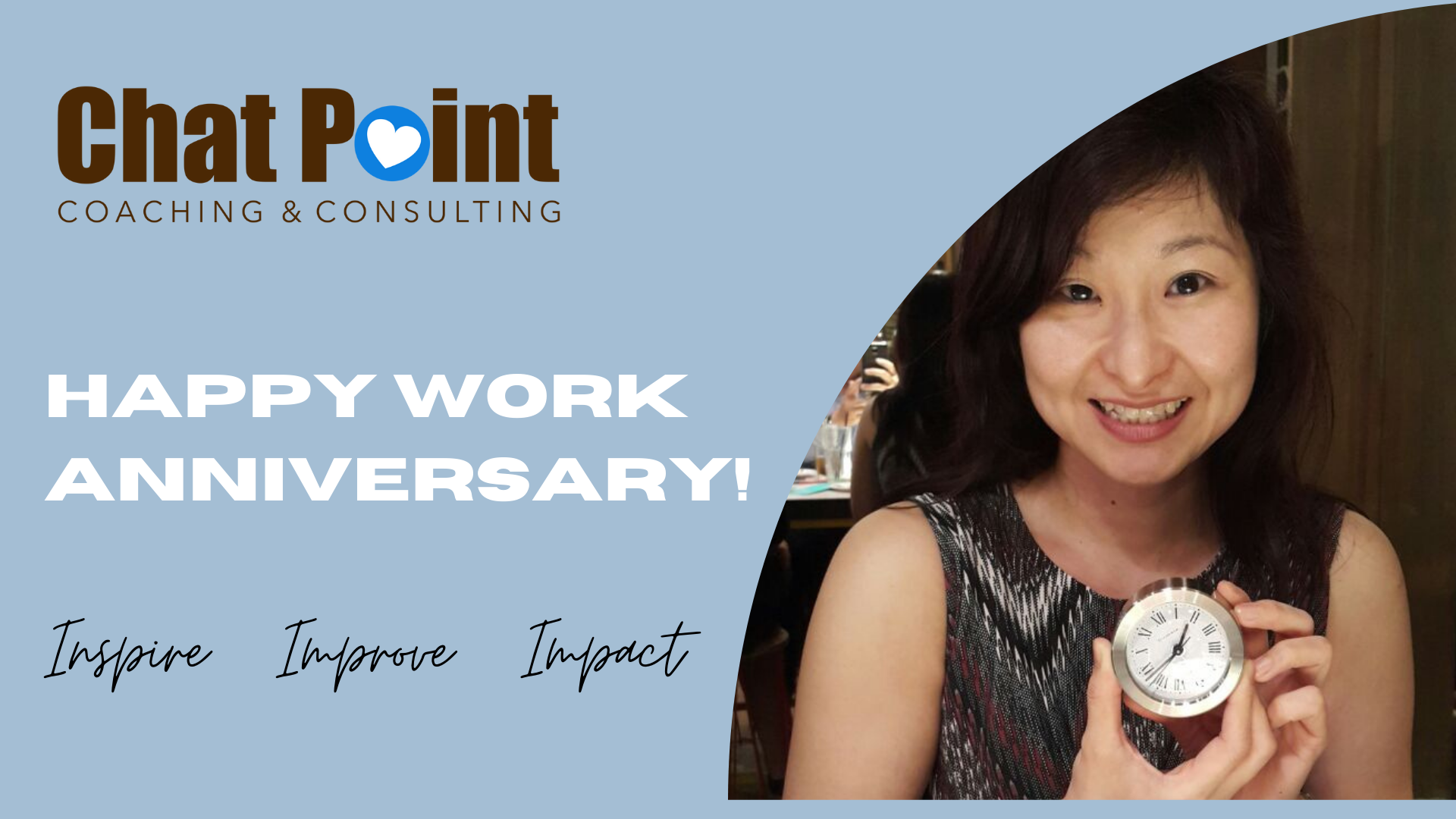Coaching Power Tool: Curiosity vs. Neutrality
25 May 2021
| by Eric Toh, MBA, PCC
Albert Einstein. |
The quote from Albert Einstein above is the basis for the Coaching Power Tool – Curiosity vs. Neutrality.
The word “Curiosity” conjures up many thoughts and ideas in people – “Be Inquisitive”, “Ask Questions”, “Why?”, “How?”, “Who?”, “When?”, “What?” – the desire to know more that could lead what else lies deeper in a seemingly simple statement or issue which could lead to heightened awareness, insights to the person and understanding of the situation from a big picture rather than a single point of view.
Growing up, children are naturally curious. Children will ask any questions without much inhibitation. They will go touch, feel, smell and taste anything new they have not seen before. They will be keen explore, experiment and try new things out without prompting or encouragement. However, over time this natural curiosity is dampened by layers of societal expectations and conformity– “Don’t ask so many questions”, “That’s too personal”, “You should know that already”, “That is a silly question”.
Over time, as human beings we can become less curious, be reluctant to explore more about a situation or person for fear of being judged or judging or overstepping boundaries.
Curiosity also wanes in this busy world that we live in. We are too busy completing tasks, rushing to our next meeting and focussing on the to do list rather than letting our imagination free to wonder. We focus on the ‘What’ too often and neglect the ‘Why’ and the ‘How’ and even the ‘What if…’.
This is when Neutrality can start to creep in – it is not so much of not being curious, but not having time to bother asking or the need to stay neutral and “not to offend”, “be politically correct”, not rocking the boat and staying in a comfort zone. We lose our curiosity as we grow up and get fixed in our ways and we can even get into an “autopilot” state.
The Power Tool Curiosity vs. Neutrality supports the coaching process by ensuring both Coach and Client are in a healthy inquisitive state which may uncover new awareness for the Client which may move the Client forward, rather than staying in a neutral zone, never knowing or confronting and hence never uncovering what the deeper insights that might be holding the Client back.
What is Curiosity?
Curiosity is defined as “eager wish to know or learn about something”. From a Coaching perspective it is important to distinguish between the desire to “know or learn something” for the purpose of satisfying the Coach’s own curiosity or from the perspective of why it is important for the Client and how it can help the Client move forward. Sometimes a Coach may be curious and may be getting too much into the detail of the Client’s story which is not good coaching practise and not the intent of this Power Tool.
Curiosity is a deep feeling inside that drives the yearning and passion to discover more. It is not enough to get the answer – the goal is to understand. According to author and journalist Thomas Friedman, “Curiosity” and “Passion” are main ingredients in a world where information is freely available and the world rewards those who have “learned how to learn” and are “self-motivated to learn” [5]. He proposed a non-mathematical Curiosity formula [5]:
| CQ + PQ > IQ
where: |
Friedman states that the sum of curiosity and passion are ‘greater’ than intelligence, which really can be summarised as “It is more important to be passionate and curious than to be merely smart.” [5]. This holds true particularly for Coaches where we are not subject matter experts or have the need to be smart for our Clients. Clients are whole and resourceful – Coaches have to be curious on how to bring the best out in the Client.
Curiosity makes one an engaging person. This is particularly important for a Coach to be engaging but it is equally important for the Client to be in a “curious space’ of discovering more about themselves and willingness to move forward.
Yet there are some reservations about being truly curious. Coaches may feel they are being judged or unintelligent by asking questions. Harvard Business Review research has shown that people who demonstrate curiosity by asking questions are liked more and are viewed as more competent compared to others [1]. Being curious also promotes meaningful connections and more creative outcomes [1].
Curiosity is an attribute related to inquisitive thinking, exploration, questioning, experimentation, investigation, desire for learning and understanding. Curiosity makes both the minds and Coach and Client active. It demonstrates that there is true engagement between the two parties, a deepening relationship and helps move the coaching process in a positive direction.
What is Neutrality?
Neutrality is often the need to stay neutral and impartial in order not to offend, not to be too confrontational, not to disrupt the harmony, not to judge or not to make judgement.
It is also a possible position to take when you feel it is none of your business, you are too busy to want to know and simply it is too difficult a issue for you to take on.
It is a neutral position – while it may be safe and comfortable to take this position, it is not helpful in a coaching relationship as it creates a limiting environment where important insights and issues may never be discovered and hence affect the effectiveness of the coaching program.
| “Neutrality is at times a graver sin than belligerence.”
Louis D Brandeisent |
Louis D Brandeis was an American lawyer and justice of the Supreme Court of the United States who worked on progressive social causes and dubbed the “People’s Lawyer” and The Economist magazine called him the “Robin Hood of the Law” always believed in taking a position rather than being neutral particularly in the fight for social justice and freedom of speech. Brandeis’ quote serves as a powerful reminder to Coaches that being neutral could very well be worse than confrontational or aggressive.
In the example where the Client is in the car, the Coach is the passenger and does not grab the steering wheel, as it is for the Client to decide which route is best to take, this story can be extended to the car needs to be engaged in the correct gear at all times to get to the destination the Client would like to go and staying in “neutral” will not get the Client there.
The words “Apathy” and “Indifference” may also come to mind when discussing “Neutrality”. The difference here is that staying neutral as a choice, as compared to being apathetic and indifferent where they are not intentional states of awareness or consciousness. Neutrality is a chosen state rather than because you were oblivious to it in the first place which can be construed as worse than not being aware at all.
A common definition of Neutrality is “not taking any position in an issue”. In coaching this is actually not a good position to take, as it may not address any underlying issues, create new awareness or insights or move the Client forward in a meaningful way.
Instead of staying neutral, the converse in this Power Tool is not about taking a position, it is rather about being curious.
Shifting from Neutrality to Curiosity
“Curiosity Killed the Cat” is a common idiom to warn or discourage someone from asking too many questions or being curious about someone or something.
However, there is also another saying that “A Cat Has Nine Lives”. A variation of the above idiom is hence “Curiosity killed the cat, but satisfaction brought it back!”
The resurrection element of this idiom light-heartedly highlights that Curiosity indeed has benefits, and is satisfying and even somewhat addictive!
So how does one shift from a state of Neutrality to a state of Curiosity?
A previous successful Australian Northern Territories Tourism Campaign undertaken to promote Uluru or famous Ayers Rock, a UNESCO World Heritage site and one of the Seven Natural Wonders of the World was aimed at piquing the curiosity of Australians [6]. The campaign was aimed at Australians who felt “neutral” about a holiday at their own Northern Territories, often bypassing it to go further afar to Asia, Europe and USA [6].
The campaign slogan they used in the campaign: [6]:
|
“You’ll Never Never Know, Australian Northern Territory |
The slogan is a powerful one that can remind Coaches to be curious and sometimes to explore what might be closer at hand, neutral about and have chosen essentially to ignore for something seemingly more attractive and interesting afar.
The state of Neutrality in coaching can arise for a number of reasons including the topic is too close at hand so it is not interesting, to the ability of the Coach to create a “curious space” to raise the topic in the first place and possibly also the reluctance of the Client to “open up”. It could be the hesitation of the Coach to confront the issues for fear of the unknown. It could also be there is an assumption that it is a “no go” zone.
The challenge is for the Coach is to create a “safe space” where both Coach and Client can be curious without fear. Courage also plays a part in being curious and asking the question that the Client doesn’t want you to ask and asking about the “elephant in the room”.
Once the Coaching has moved into the space of Curiosity rather than Neutrality, insights and awareness can be discovered through curiosity that would lead to a more effective Coaching session outcome and develop a more sustainable Coach-Client relationship.
Application
How does on apply the Power Tool: Curiosity vs. Neutrality in the coaching process?
Both Coach and Client ideally need to be in a “curious space” rather than a “neutral space”. Some key pointers for Coaches in the application of this Power Tool:
- Create a “safe space” where both the Coach and Client can be curious
- Don’t label things (both verbally or in your mind)
- Take a pause – listen without judgement
- Don’t jump to conclusion – be willing to be wrong
- Be empathetic – how does it feel to be in the Client’s shoes?
- Make time for curiosity
- Be willing to ask many questions and ‘dumb’ questions
- Be comfortable not knowing the answers
- Experiment with different ways of being curious
- Be a child again!
Reflection
- What am I not curious about now?
- Notice when someone else is being curious
- What am I not noticing here?
- How does that work?
- What other perspectives could there be?
- What is underneath all this?
- What are the benefits of being curious?
- What are the consequences of being neutral?
References
- Why Curiosity Matter, F Gino, Harvard Business Review
(September – October 2018 Issue) https://hbr.org/2018/09/curiosity - 8 Habits of Curious People, S Vossa, Fast Company (21 April 2015) https://www.fastcompany.com/3045148/8-habits-of-curious-people
- The Importance of Being Curious, D Molokhia, Harvard Business Publishing
(24 May 2018) https://www.harvardbusiness.org/the-importance-of-being-curious - A Curious Mind, Brian Grazer & Charles Fishman (2015)
- The World is Flat: A Brief History of the Twenty-First Century, Thomas Friedman (2007)
- World Advertising Research Centre https://www.warc.com/fulltext/afa/13868.htm
- In Praise of the Incurably Curious Leader, MIT Sloan Management Review (July 18, 2019) https://sloanreview.mit.edu/article/in-praise-of-the-incurably-curious-leader/







